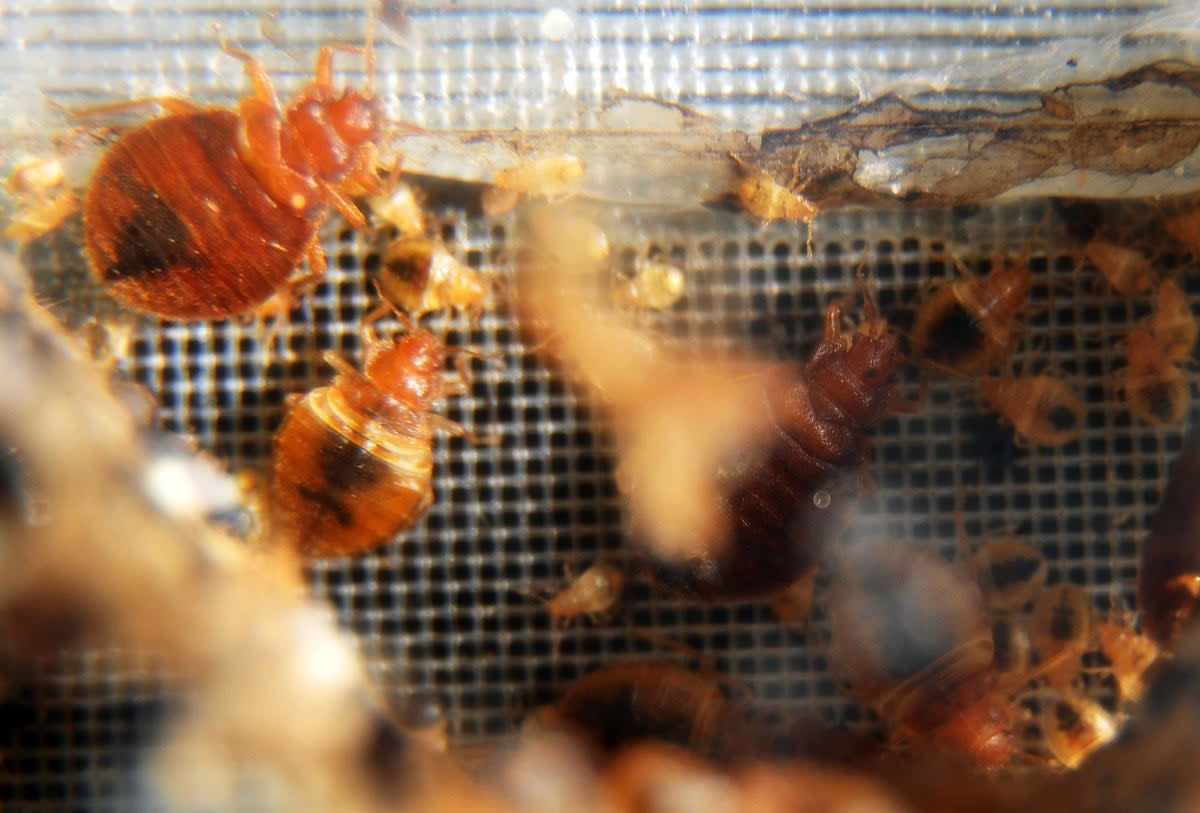How to get rid of bed bugs: expert tips as officials warn “no one is safe” from potential Paris outbreak

Paris has declared war on bed bugs, as the blood-sucking insects are spotted on cinema seats, public transport and in hotels.
A wave of viral footage has stoked fears of unfettered spread as the city prepares to welcome thousands of tourists for the Olympics next year.
On Friday French Transportation Minister Clément Beaune pledged to meet with transport operators, while Paris deputy mayor Emmanuel Grégoire warned “no one is safe”.
The government was forced to set up a dedicated hotline to support despairing homeowners in 2020, and extermination costs have topped €1.4 billion over five years.
But does Paris provide a particularly fertile breeding ground for bed bugs – or is London just as susceptible to a major outbreak?
Bed bug 101
Rampant until the 1950s, bed bugs were nearly wiped out by the widespread use of now-banned insecticide DDT, but remaining populations developed remarkable resistance to a range of pesticides.
They are not dangerous except in very rare cases, but cause itchy bites and sometimes rashes.
The insects will never choose to live outside, so are unlikely to encounter the severe and prolonged cold weather that can kill them. More likely is hibernation in winter months – and London-based exterminators Bed Bug Specialist say they will simply “regain their mojo” when spring kicks in.
Numbers tend to peak in August and September due to travel patterns, not weather. For all intents and purposes they are year-round pests.
Tommy, who has worked for Bed Bug Specialist for 12 years, suspects the Paris situation represents a sudden increase in awareness for an endemic issue. “Bed bugs have always been a huge problem in Paris – and London,” he explains, adding that colleagues in Paris share his sentiment.
But pest control company Rentokil estimates there has been a 65 per cent year-on-year increase in bedbug infestations in the UK.
It’s a recipe for some very itchy Londoners.
Have I got bed bugs?
Bed bugs expand significantly when fed, but “the first thing people tend to notice is faeces on the mattress or bed frame,” says Tommy. Typically black or a dark reddish-brown, the droppings may have a rusty odour and are hard to clean.
Bites are the most obvious symptom of bed bugs, “but some people don’t seem to get bitten. Then some will have a delayed reaction – even up to two weeks – while others will discover they are allergic”.
People may also spot tiny droplets of blood, both from bites and where the bed bugs have been squashed against bedding.
What to do if you discover bed bugs
The NHS recommends washing affected bedding and clothes on a 60C wash and tumble drying for at least 30 minutes, or putting it in a plastic bag in the freezer for three or four days.
It concedes that both strategies are unlikely to get rid of bed bugs completely.
Tommy warns of trying to tackle the issue without specialist help: “Do-it-yourself products can disturb the bed bugs and cause them to start nesting in unusual places, such as under skirting boards, behind picture frames, and, in some cases, inside electrical sockets.”
“It’s the most common mistake we see – people just buy powders and chemicals and whatever they find and try to resolve the problems themselves. It makes our job much more difficult”.
Bed Bug Specialist, who do “five to twelve treatments every day”, offer two services: a steam and spray option, which relies on a reasonably clutter-free house, and a heat treatment that comes with a three month guarantee.
How to prevent bed bugs
While cleanliness is no guarantee against bed bugs, vacuuming regularly will help you spot an infestation early. Avoid clutter around the bed, which offers plenty of easy hiding places and could obscure a growing population.
Experts have suggested that a rise in the resale of second-hand furniture on sites like eBay and Facebook may be helping bed bugs spread, so check any purchases carefully before bringing inside.
But the best thing you can do, says Tommy, is to try to avoid picking them up when you travel.
“When you’re in a hotel, keep the suitcases away from the bed as much as possible. Just take what you need from the case and zip it back up – don’t store your clothes in the drawers or on a rail”.


